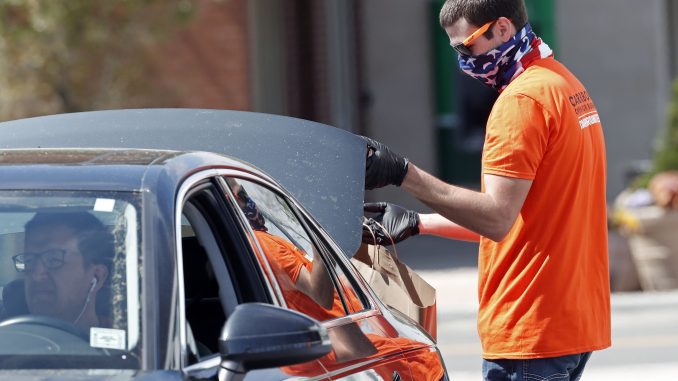
RALEIGH — North Carolina’s capital county on Thursday added another 1.1 million state residents to those now or soon under stay-at-home orders to dampen the coronavirus spread, which state officials say has contributed to another death.
Elected leaders of Raleigh, Cary and elsewhere in Wake County agreed to the countywide order, which will take effect as of 5 p.m. Friday until April 16. It directs employees in otherwise non-essential businesses to remain at home except when doing things such as grocery shopping, going to doctor appointments, exercising and other narrow exceptions. Gatherings beyond one’s immediate family are prohibited.
“The damage that this virus is doing to us and to our economy will be minimized by taking action today,” Wake County commission Chairman Greg Ford said in making the announcement. “The length of time in which our lives are disrupted can be minimized by being proactive.” Wake County said it had about 100 positive cases as of Thursday afternoon.
Similar declarations are in effect or will be soon in Mecklenburg, Buncombe and Guilford counties, as well as in Durham and Winston-Salem. Orange County’s order, which includes Chapel Hill and Carrboro, takes effect Friday evening through all of April.
Statewide, restaurants are closed statewide for dine-in services but can still offer take-out and delivery.
State health officials announced another virus-related death of a Harnett County resident, but provided no additional information. The state earlier this week announced two other deaths — one a person from Cabarrus County and another person from Virginia who contracted the virus while in North Carolina. The Virginia resident will not be counted in North Carolina’s official tally, however, according to the Department of Health and Human Services.
The state counted more than 630 positive COVID-19 cases as of Thursday morning, or about 130 more than Wednesday, with 50 people hospitalized. More than 15,000 COVID-19 tests have been completed statewide.
Gov. Roy Cooper has over time expanded statewide movement and commerce restrictions, and extended the closings of K-12 public schools through May 15. Cooper has declined a statewide stay-at-home right, but he said on Wednesday he expected additional guidance and orders soon.
Trade groups representing the state’s hospitals and doctors have urged Cooper to issue statewide directives that further prevent the public’s movement. Donald Gintzig, the WakeMed Health and Hospitals CEO, told state House members during a Thursday COVID-19 subcommittee meeting that the time for a statewide stay-at-home order probably came a few days ago.
“Staying at home is not going to make this thing go away,” said Gintzig, who is also chair of the North Carolina Healthcare Association. “What it will do … is that amount of spread that I talk about (will) happen at a much more predictable and manageable rate.”
As preparations for acute care continue, North Carolina has more than 5,000 in-patient hospital beds currently empty, State Health Director Betsy Tilson said, based on information from 75% of the state’s hospitals. More than 550 intensive-care unit beds are empty, not including additional equipment that’s expected to arrive for a surge, she said.
Child care centers can remain open in the state, but those that want to keep operating as of next week must fill out an application and meet more restrictive health and safety guidelines. The state will offer worker bonuses and payments for families whose parents are considered critical workers.
Unemployment benefit claims in North Carolina had reached 210,500 from March 16 through late Thursday, of which 88% are related to COVID-19, the Division of Employment Security said. This total compares with 100,000 claims received per month during the Great Recession in the late 2000s — labeled until now as the state’s employment security agency high-water mark, division head Lockhart Taylor said.


